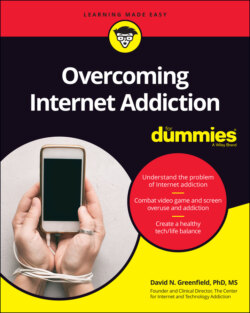Читать книгу Overcoming Internet Addiction For Dummies - David N. Greenfield - Страница 61
Watching out for overprotection
ОглавлениеOut of love and concern for your kids, you may think that it’s a good idea to protect them from all of life’s ups and downs. This is certainly understandable, but is it always best for your child? It seems that parenting has become safety-focused, often to the point of overprotecting children and robbing them of the opportunity to experience mistakes and their consequences. While, of course, you don’t want anything dangerous or damaging to happen to your children, there is a point where such protectiveness does more damage than good and potentially blocks them from learning how to manage the ebbs and flows of life. This can also limit your child’s willingness and ability to take the necessary risks required to reach maturity and launch into adulthood.
Through their experiences, children encounter limits, consequences, emotions, socialization, compromise, and how to manage their minds and bodies. They come head-to-head with their fears and develop the resilience and courage they need to face challenges. As children learn, they begin establishing a balance between the strong limbic (dopaminergic) desires for pleasure, and the gabaminergic inhibition of the cerebral cortex and frontal lobes (all covered earlier in this chapter). As their brains’ executive functions strengthen and become better equipped to counteract desire for excess pleasure, children can engage in more rational internal discourse, such as “Yes, that would be a lot of fun, but no, I’m not going to stay up all night gaming because I have an exam to study for and I have to be up early.” Or they will become able to bargain with themselves with a delayed reward after accomplishing a necessary (but less pleasurable) task.
